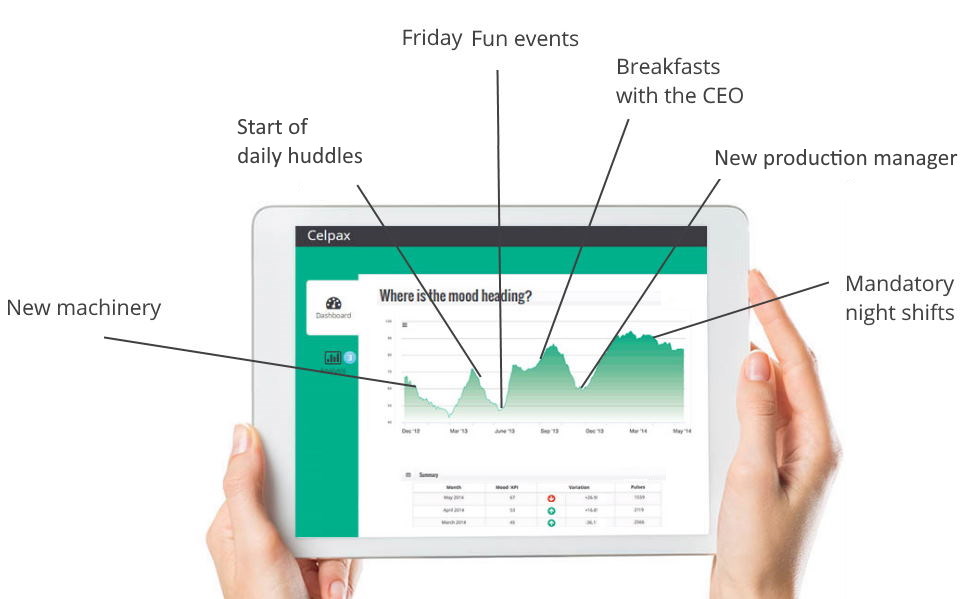Disrupting Work: The Problems We Face Now
Disrupting Work:
Guest blog 1 out of 3 by Chris Gerry, CEO at the SkillsLab. They facilitate cultural change that allows people to develop soft-skills needed to learn, work and lead happy lives.
 Europe faces significant social and economic challenges in the next decades against a backdrop of global change.
Europe faces significant social and economic challenges in the next decades against a backdrop of global change.
There are three that dominate: climate; population and the economy.
Climate
The second half of 2015 and first of 2016 saw monthly temperatures beating all previous recordings. Carbon dioxide passed 400 parts per million in March 2016. 350 parts per million is considered safe in terms of avoiding consistent planetary warming. Ouch.
Temperatures are set to rise by 2 degrees centigrade by 2050 with a likely increase in severe weather events; reduction in crop growth in the Middle East and southern Europe and a rise in global sea levels.
The impact of this could result in reduced food production and growing problems with supplying fresh water. Additionally, increases in migration will pose severe political and social issues for the EU.
Population
The second area of concern is population. EU population is expected to peak in 2025 with migration adding to the population of the EU25.
Deaths have been greater than births since 2010 and the trend of downward population will continue at least until 2050 when there will be some 52 million fewer people in the EU25.
By 2050 the proportion of people of working age (16 to 64) will have fallen from 307 million in 2004 to 255 million by 2050.
The scale of population decrease in some states is dramatic with countries losing as much as 19 % of their population whilst 10 % is quite common (EU report).
With the numbers of elderly over the age of 80 increasingly dramatically from 4 per cent in 2004 to over 11 per cent by 2050, the elderly dependency ratio will increase from 24.5% in 2004 to 53% in 2050.
The costs of this will need to be met from EU workers – a challenge since these numbers are in decline.
Economy
These developments will all have an impact on the European economy. Economic growth has been limited since the global collapse of 2008 and currently is about 0.6 per cent per annum. EU growth rate has averaged a mere 0.36 % since 1996.
But in part this is a global phenomenon, with former US treasury secretary Larry Summers labelling the problem as ‘secular stagnation’ characterised by near zero growth.
People worldwide buy less ‘stuff’
People everywhere appear to be buying less: in 2000 UK consumers bought fifteen tons of ‘stuff’; by 2015 this had dropped to ten tons.
In this economic environment wage growth has been poor and income inequalities have increased substantially.
The combined effects of new global production and distribution, a weakened banking system following the 2008 collapse, declines in governmental incomes, and differential growth rates between northern and southern Europe have combined to produce significant economic challenges.
Disrupting traditional work practices
An additional challenge has been the rise of new business models with consequent disintermediation and disruption to traditional work practices.
These are likely to advance in the coming years with the rise of machines increasingly displacing labour.
Here the impact of Moore’s Law (the doubling of computing capacity every eighteen months to two years and the halving of costs) is now beginning to make significant inroads into displacing workers as computing power becomes more significant.
Businesses are struggling to catch up
The rise of automated manufacturing, intelligent algorithms and the emergence of the internet of things all point to significant structural changes to patterns of employment. One study suggested that almost 50% of jobs are capable of being replaced by machines at the current time.
This number will only increase in future decades: think driverless cars and commercial vehicles; medical diagnosis via machines; automation in retail and travel; hospitality and leisure.
Against this backdrop, businesses are struggling to catch up.
They face significant challenges in terms of markets, regulation and – most critically – productivity.
What is to be done?

Chris Gerry is CEO at The Skills Lab. They provide behavioural training and advisory services to organisations in the UK and around the world. They facilitate cultural change that allows people to develop soft-skills needed to learn, work and lead happy lives.
Measure if your leadership actions are working.
Similar interests
- Non Gamstop Casinos UK
- Slot Sites UK
- New Betting Sites UK
- Casinos Not On Gamstop
- Gambling Sites Not On Gamstop
- Casino Non Aams Sicuri
- UK Online Casinos Not On Gamstop
- Gambling Sites Not On Gamstop
- Sites Not On Gamstop
- Sites Not On Gamstop
- Non Gamstop Casino Sites UK
- Best Online Casino Canada
- UK Casino Not On Gamstop
- Non Gamstop Casinos
- Casinos Not On Gamstop
- Siti Scommesse
- Top Casino Sites UK
- Slots Not On Gamstop
- Casino En Ligne Meilleur Site
- Casinos Not On Gamstop
- Betting Sites UK
- Slots Not On Gamstop
- UK Casino Not On Gamstop
- Migliori Casino Online Non Aams
- Non Gamstop Casino UK
- Lista Casino Online Non Aams
- Meilleur Casino En Ligne
- Best Crypto Casino
- Casino En Ligne
- Casino Online
- Casino En Ligne France
- Paris Sportif Ufc
- Casino Jeux En Ligne
- Meilleur Casino En Ligne
- Bonus Free Spin Senza Deposito
- Casinò Non Aams Con Free Spin Senza Deposito
- Nuovi Casino Non Aams
- Migliori Casino Online
- Crypto Casino
- Casino Non Aams




